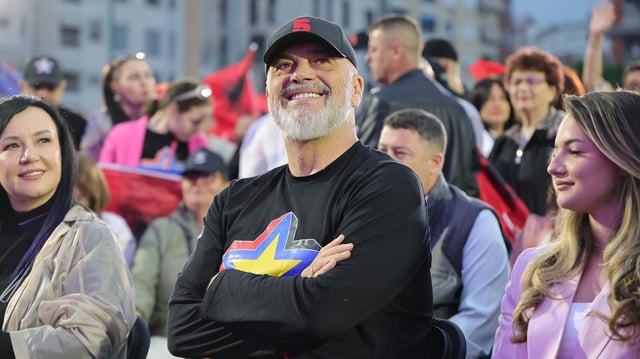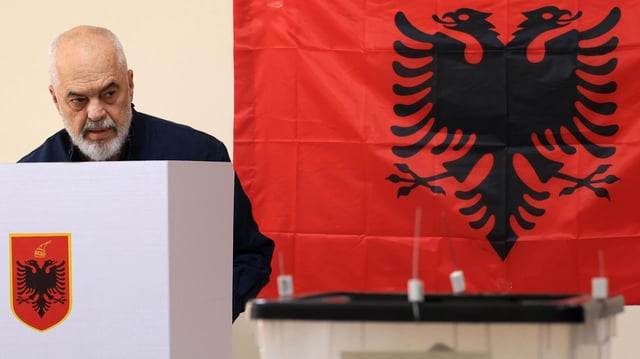Overview
- Edi Rama’s Socialist Party claimed 52% of the vote, securing 82 of 140 parliamentary seats, marking his fourth consecutive term since 2013.
- The opposition, led by Sali Berisha’s Democratic Party, received 34% of the vote and alleged vote-buying, citing a last-minute amnesty on fines benefiting 170,000 people.
- OSCE observers criticized the misuse of public resources, voter intimidation, and unequal media coverage during the campaign, though the voting process itself was deemed valid.
- The election saw record-low turnout at 42%, with the introduction of online voting enabling participation from 191,000 diaspora voters for the first time.
- Rama’s campaign emphasized Albania’s EU accession goal by 2030, despite ongoing challenges such as corruption, economic inequality, and political polarization.


